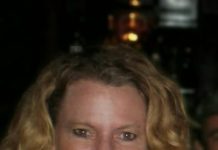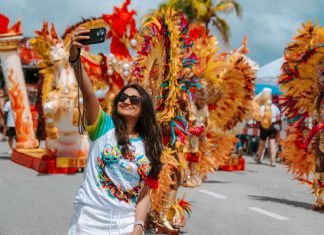Last week on May 7, 2025, the Aruba Conservation Foundation (ACF), in collaboration with Wageningen University & Research (WUR), held an informational evening during which they presented the results of a study conducted by researchers from WUR in the Netherlands about Aruba’s natural environment and the ways in which sustainable measures can be implemented to protect and improve the direction in which Aruba’s nature is headed.
Under the warm lights at Fort Zoutman, the presentation welcomed attendees from various foundations, government agencies, environmental lovers and activists, and even former Prime Minister Mike Eman, who currently also holds the portfolio for Nature. Presented by Dr. Lawrence Jones-Walters and Dr. Peter Verweij from Wageningen University, the evening featured a program that gave various foundations and government agencies the opportunity to be part of a panel and discuss topics related to the development of Aruba’s environment.
The research by WUR and ACF focuses on a new vision to address the effects of climate change, overpopulation, and tourism on our nature, among others. With the report titled ‘Aruba 2050: A Nature-Inclusive Vision’, ACF and Wageningen highlight the challenges Aruba’s environment is facing while providing a vision for how our natural surroundings can evolve by the year 2050, along with offering recommendations for implementing measures to sustain Aruba’s environment. Dr. Lawrence emphasized that the project took two years to complete and involved various methods of data collection, including interviews with different foundations and citizens, workshops, fieldwork, and the study of Aruba’s environmental policies. Through the collected data, several areas of concern for the development of nature were identified. These include overpopulation and urbanization, excessive growth in tourism, climate change, local food cultivation, consumption power, renewable energy, culture, and economic diversification. The presentation addressed some of these findings.
The WUR report not only presents the challenges currently facing Aruba but also offers a glimpse into the island’s future. It outlines two scenarios: one in which Aruba continues its current management—referred to as the “business as usual” approach—and another that prioritizes nature across all sectors and lifestyles, called the “nature-inclusive” approach. Both scenarios provide a stark contrast, with the “business as usual” approach leading to a doubling of the tourist population, infrastructure expansion to accommodate both tourists and immigrant workers, and a depletion of Aruba’s natural resources like water and electricity. The nature-inclusive approach envisions a future where tourism and population growth stabilize, focusing on eco-tourism, using resources primarily through sustainable methods like wind and solar energy, limiting unnecessary construction (with priority given to restoring old buildings first), and promoting local products.
During this informative and collaborative evening, the strong desire for drastic changes in the current approach to nature conservation was evident. A shared vision, adequate leadership, and concrete measures were highlighted as essential elements to achieving a future where Aruba’s natural environment and its community can thrive and live in harmony.
















